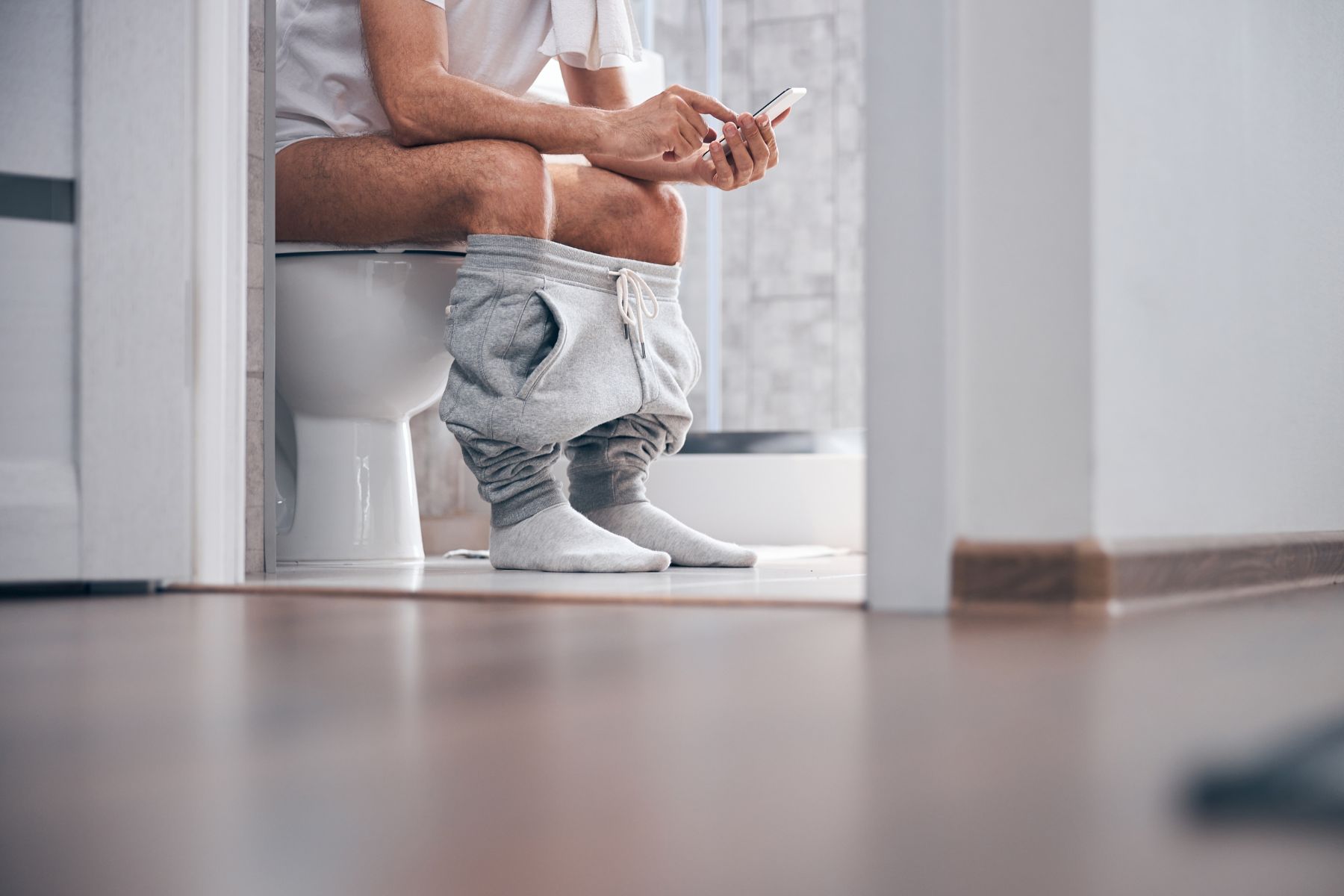Do you ever look around the house and suddenly realise your partner is gone, only to hear the familiar click of the bathroom door? Or walk around the mall and he suddenly needs to excuse himself? Or try to leave the house and, of course, he has to “go” at the exact same moment?
Women everywhere have revealed a universal truth: men love to poop – or at the very least, they love going to the toilet. And honestly, at this point, we’re all asking the same thing: What is it with men and the toilet?

Is there something deeply psychological happening? Something evolutionary? Something… suspicious?
As it turns out, a mix of biology, stress relief, habit, and social conditioning all swirl together to create the Great Male Toilet Mystery. Let’s flush out the truth.
The bathroom = his private escape
For many men, the bathroom is one of the few places where they feel legitimately allowed to be unavailable. It’s the only room with a lock that society universally respects. No one questions it. No one barges in. It is sacred.
Psychologists call this a micro-escape – a short, socially acceptable withdrawal from responsibilities. Inside the bathroom, men decompress, scroll, think, avoid, and reset. Behaviour research suggests that this brief solitude can actually reduce stress hormones.
So when he says, “I’m going to poop,” what he really means is: “I need five minutes alone.”

But let’s not pretend that men simply go to poop. It’s a whole event. Phone in hand, they sit down as if settling in for a long-haul flight. The modern bathroom becomes a unique intersection of biology, habit, and reward loops. The bowels do their thing, pooping time becomes scrolling time, and dopamine rewards from videos or games extend the session.
This is why he can go in to “use the toilet” and come out 22 minutes later fully informed on conspiracy theories, car restorations, and five new TikTok trends. Meanwhile we’re outside wondering if he fell in.
The biology bit: Yes, there is some science here
There are actual physiological reasons men may go to the toilet more frequently or stay longer. As men age, the prostate can press on the urethra, making urination more frequent. Even younger men can experience strong urgency due to sensitivity or hydration habits.
Men also tend to relax their pelvic floor muscles most fully when they feel mentally “off duty”, and the bathroom psychologically creates that switch-off moment. This relaxation makes bowel movements easier. Studies also show that men and women perceive bladder fullness differently. Men may delay urination until discomfort, then take longer to empty.
So yes, part of it is science. But part of it is also the vibe – the bathroom as sanctuary, escape, and maybe a touch of drama.
Culture meets male psychology
Many men have been raised with messages like “don’t show stress,” “don’t complain,” and “hold it together.” Enter: the toilet. It becomes a socially acceptable excuse to step away without explanation. Saying “I need a break” aloud can feel difficult, but “bathroom” is easy.
In couples therapy, men often identify the toilet as a buffer zone between stressful activities. Not because they don’t love us, but because they love quiet.
And let’s be honest: men are extremely comfortable talking about poop. Women? Not so much, thanks to societal conditioning. So when he announces his bowel movements like breaking news, it’s partly because he’s been taught it’s funny, harmless, and maybe even bonding.
The toilet becomes an identity zone. He guards that time like a dog guarding its bed, while we’re just trying to get him out in time for dinner.
Should you be concerned?
For men, it’s a psychological cocktail of solitude, routine, phone time, peace, emotional decompression, and a moment of zero expectations. The toilet is their quiet place, their bunker, their cave – their throne, literally and figuratively.
Usually, there’s nothing to worry about, but sitting on the toilet for too long can be bad for health. A recent study found that people who use smartphones on the toilet were 46% more likely to develop hemorrhoids. The risk isn’t just from straining – prolonged sitting puts constant pressure on the rectal veins, and the open toilet seat offers poor pelvic-floor support.

Medical experts recommend limiting toilet time to 3–5 minutes, or at most 10–15 minutes. Additionally, other risks of prolonged toilet time include anal fissures and discomfort from poor posture, especially when leaning forward to scroll on a phone.
So while his bathroom escape is likely just a harmless coping mechanism, extended sessions aren’t entirely harmless. A gentle reminder (or timer) might save both your patience and his veins.
At the end of the day, these moments are part biology, part habit, and part psychological escape – and now you know it’s a shared experience that many of us have witnessed and will continue to witness. So the next time he declares, “I’m going to poop,” feel free to smile (or roll your eyes) – because it’s all completely normal.
Disclaimer: The writer is not an expert; she’s simply a curious mind trying to decode the mysterious male bond with the bathroom.
Discover more wellness stories here.








